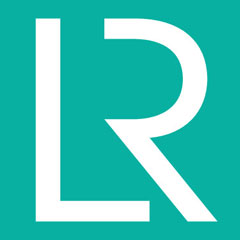Risk management for the digital age
In the 100 years between 1760 and 1864 shipping started to take on the responsibilities of risk management. The Society for the Registry of Shipping was set up by customers of Edward Lloyd’s Coffee House in Georgian London. The aim was to give merchants and underwriters recorded information on the quality of their vessels. The Register Book listed vessels rated, or classed, after the condition of their hulls and equipment had been surveyed. The subscriptions generated by the Register Book paid for the surveyors to carry out the work.
A second register was set up in 1797 to cater for ships built outside London, and the two registers were merged when it became clear that shipowners, merchants, and underwriters needed an impartial measure of quality. Agreement was eventually reached in 1834 with the meeting of the first Committee of the reconstituted Lloyd’s Register of British and Foreign Shipping.
In the meantime, pressure was building for similar registers of quality. The Bureau de Renseignements pour les Assurances Maritimes was formed in Antwerp in 1828, adopting the name Bureau Veritas in 1829. Austrian Veritas became the third class society when it was founded on the Adriatic coast in 1858. American Bureau of Shipping was first chartered in the state of New York in 1862 to meet a demand for industry self-regulation. Its first technical standards, Rules for Survey and Classing Wooden Vessels, was published in 1870.
Det Norske Veritas (DNV) was founded in 1864 as a membership organisation in Oslo to provide “reliable and uniform classification and taxation of Norwegian ships”, followed three years later by the signing of the convention of Germanischer Lloyd to evaluate the quality of ships and deliver the results to shipowners, merchants, and insurers.
Much has happened to shipping, to the supply chain, to geopolitics, and to risk management in the 250 years since the pioneers of Class signed their conventions. Classification remains a key element in the technical structure of our industry, although today’s class societies have taken diversification to a whole new level. From wind energy to nuclear power via food retailing, healthcare, aerospace, and cyber security for private and commercial vehicles. There’s almost nothing class won’t cover to ensure safety of life and protection of the environment.
Then there’s digital disruption which, if the evangelists are right, will turn all these sectors upside down. “Digitalisation should not just replace analogue systems,” Lloyd’s Register’s head of marine and offshore Nick Brown told Lloyd’s List recently, “it should improve the way vessels are operated, the way crews interact with technology, the way ships connect with shore stations, ports and the wider supply chain.” More than improve; disrupt, challenge, transform.
Is Class ready for transformation? If the transition from analogue to digital takes place over 20 years, will classification societies have the resources – technological and human – to keep up? Is it time for a root-and-branch reassessment of risk management in the safety, the environmental protection, and the security sectors? If the transition takes only 10 years – the time taken for the cell phone to transform personal communications – how many class societies will survive?
Class is at a crossroads and faces critical decisions. Heritage and tradition are irrelevant; vision and the alignment of cross-sectoral human-technical partnerships are the only guarantee of endurance. Because risk is the only certainty, risk management is among the few business areas requiring constant improvement.
Lloyd’s List’s Class Act webinar on September 25th looks at classification for the digital age. Sponsored by Lloyd’s Register, this discussion will focus on the skills needed by those cross-sectoral partnerships, the likely development of risk management, and the leadership required to maintain a steady course in an unstable risk environment.

